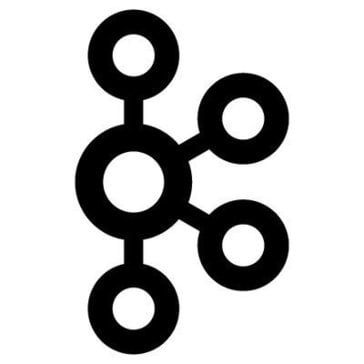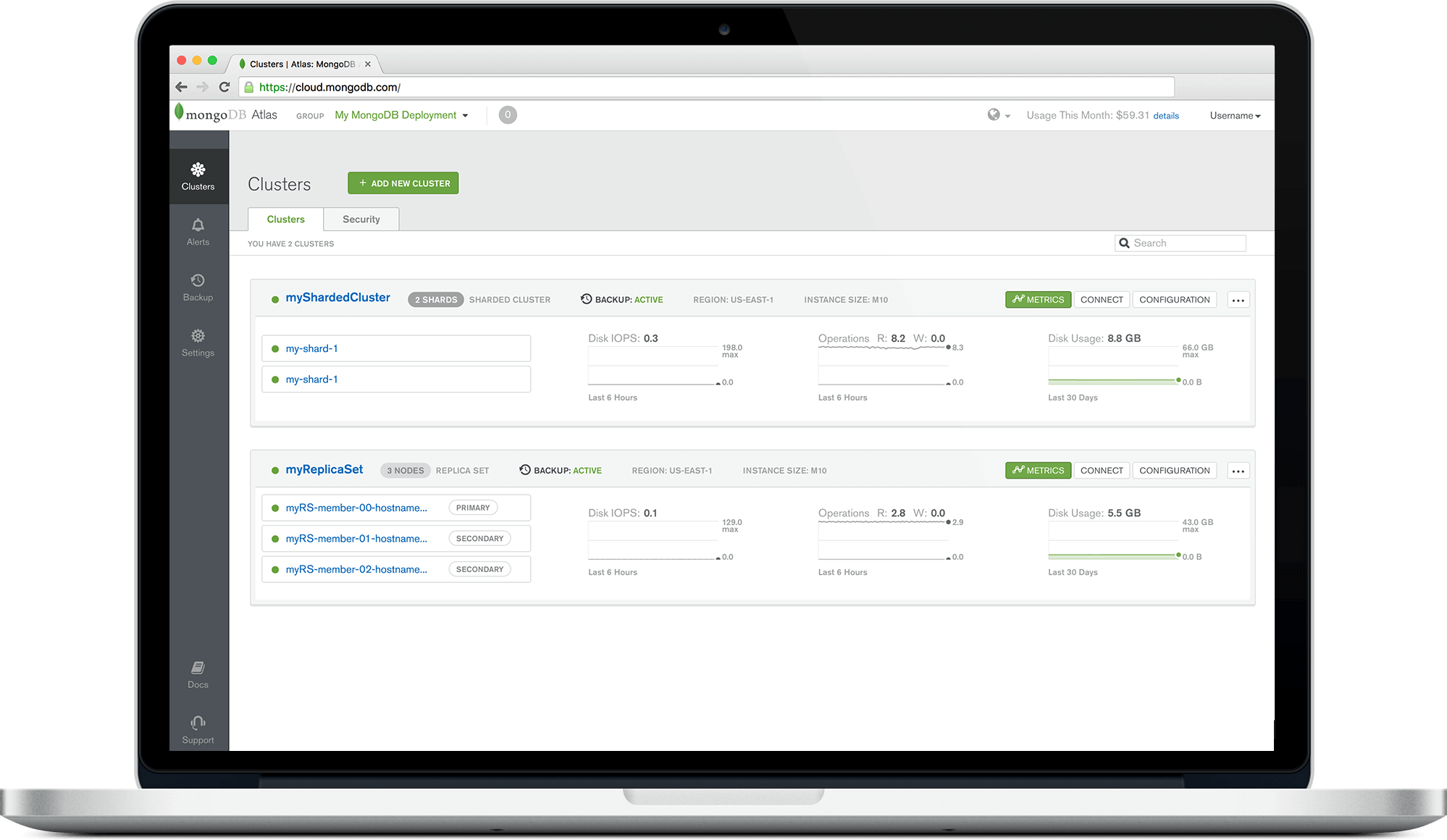Top Rated MongoDB Alternatives
Video Reviews
531 MongoDB Reviews
Overall Review Sentiment for MongoDB
Log in to view review sentiment.
Flexible document base data models, easy to use and implement with various languages, large community for questions and tutorials, its query language and reliable in production applications Review collected by and hosted on G2.com.
has a learning curve if coming from sql based databases, things like joins, data integrity and schema validation are not available here. usually you know these drawbacks when you choose nosql Review collected by and hosted on G2.com.
Many popular SQL-based database technologies can help us to store structured data, however, when it comes to storing a huge volume of semi-structured, MongoDB which is a NoSQL-based database is one of the best in the business. It gives us the flexibility to store the less structures business application data seamlessly. Review collected by and hosted on G2.com.
Though MongoDB can store our data in large volumes smoothly It is less flexible when it comes to retrieving that data stored in multiple collections, As MongoDB doesn't support the Join feature amongst multiple collections for data retrieval. This causes data duplication and intervention of ad-hoc back-end code to perform join manually. Review collected by and hosted on G2.com.
It is flexible and helps to store data in document format. If you want to handle a huge amount of data then it is a perfect platform. It is providing high performance and better solution of storing data. As data is stored in document format thus you can easily delete and add any existing field and you can change records as well. It helps in fetching data accurately and storing complex structures. It helps in storing data with any type and size. Review collected by and hosted on G2.com.
Users are facing a lot of security issues. Aggregation is complex and difficult to learn. It has a terrific administrative interface. It will not be able to work fast with a cloud environment, most of its processes will slow down. It may be impossible to remove some comments in it. Review collected by and hosted on G2.com.
NoSQL yet supports schema
Support for geospatial indexing with sharding, replication
Pipeline aggregation
Vast community support and client library in every language
Readymade connector with changelog to elastic search , kafka etc Review collected by and hosted on G2.com.
Lack of analytical stack
Complex sharding operation with manual balancing Review collected by and hosted on G2.com.
MongoDB is great NoSQL document db that offers features horizontal scaling, schema less architecture, good third party support Review collected by and hosted on G2.com.
Limited support of ACID transactions and complixity of sharding Review collected by and hosted on G2.com.
I have been using MongoDB for around 2 years and it has one of the easiest learning curve. I can easily integrate it via either Node or install the command line of MongoDB to get started. The documentation is greater as well which is easy to understand. Although the best thing would be that it's free to use up to a certain limit and allows scaling with ease. Review collected by and hosted on G2.com.
The only thing I can find to dislike would be MongoDB's flexible document modal which allows schema-less data, its good for some cases but at time causes some complexity when a lot of relations are required between documents. Review collected by and hosted on G2.com.
1. Mongo Db is a NonSql data base you don't need to execute query
2. Store JSon base collection so you can story data directly that coming in REST API body
3. Lightweight it means the response is faster and takes less memory to compute
4. Take less storage
5. No worries about the relation
6. Easy to understand and easy to learn Review collected by and hosted on G2.com.
1. Its NonSql so sometimes it's difficult to maintain
2. Less Security than SQL database
3. Some time its depends on technology like PHP if i use PHP then i use My SQL because its easy to integrate and manage for PHP technology Review collected by and hosted on G2.com.
MongoDB follows a document-oriented data model, which allows for storing and retrieving complex data structures as JSON-like documents. This flexibility makes it well-suited for handling unstructured and semi-structured data.
It provides high-performance data operations, thanks to its support for indexes, sharding, and in-memory computing. It can efficiently handle large volumes of data and perform fast read and write operations. Review collected by and hosted on G2.com.
MongoDB's memory usage can be relatively high compared to other database systems. This is due to its in-memory caching and indexing mechanisms, which aim to optimize performance but may require more system resources. Review collected by and hosted on G2.com.
Key value pair is simple database schema so when you need some info to be stored, mongodb is the first thing that comes to my mind.
Compare to SQL there are easier aggregates function which will give you edge. Review collected by and hosted on G2.com.
As of now nothing to dislike as I'm working on it above 1 year.
In some scenarios SQL can be fast but ease of use and simplicity is the thing I have gone for, so it's awesome. Review collected by and hosted on G2.com.
Flexible Schema - In MongoDB we don't have to think about proper schema (unlike SQL databases) during application building, as our needs change we can add properties to schema.
Fast scanning in big collections- MongoDB stores data in a binary format that why its query executes very fast even in nested searches. Review collected by and hosted on G2.com.
Infinite loop error- due to collections relations, while saving or updating data in another collection it gets stuck in an infinite loop.
Ram Size error- While doing a query on a large dataset, it gives an aggregate pipeline size error. Review collected by and hosted on G2.com.







